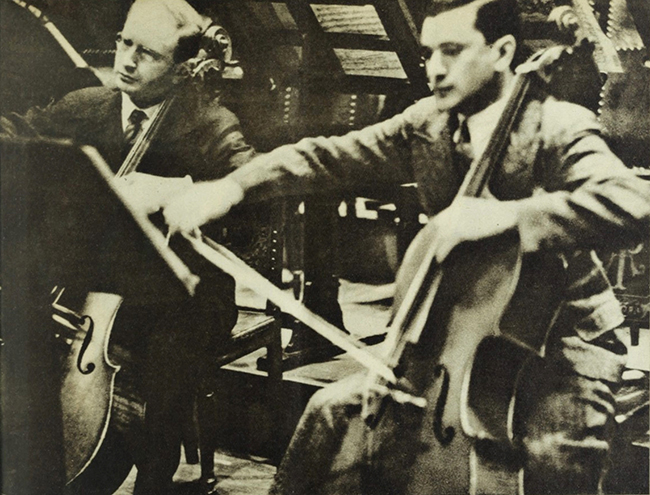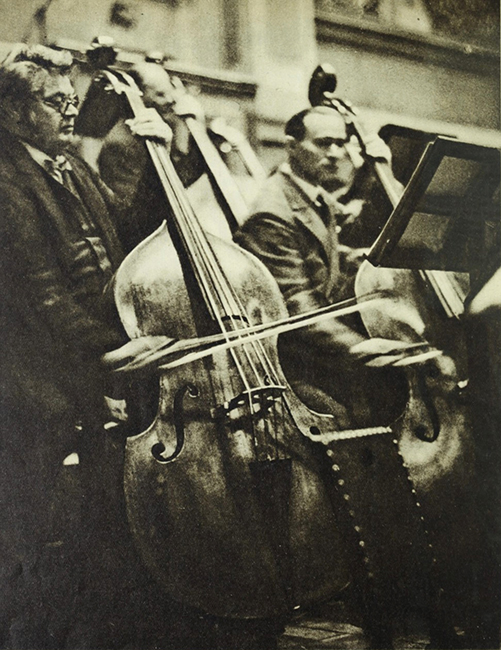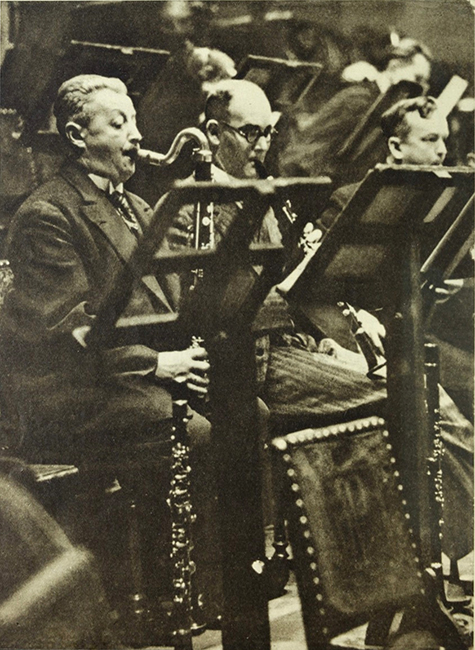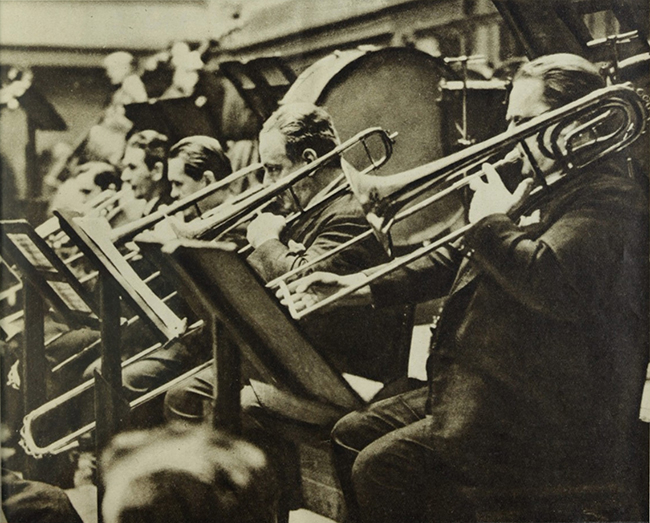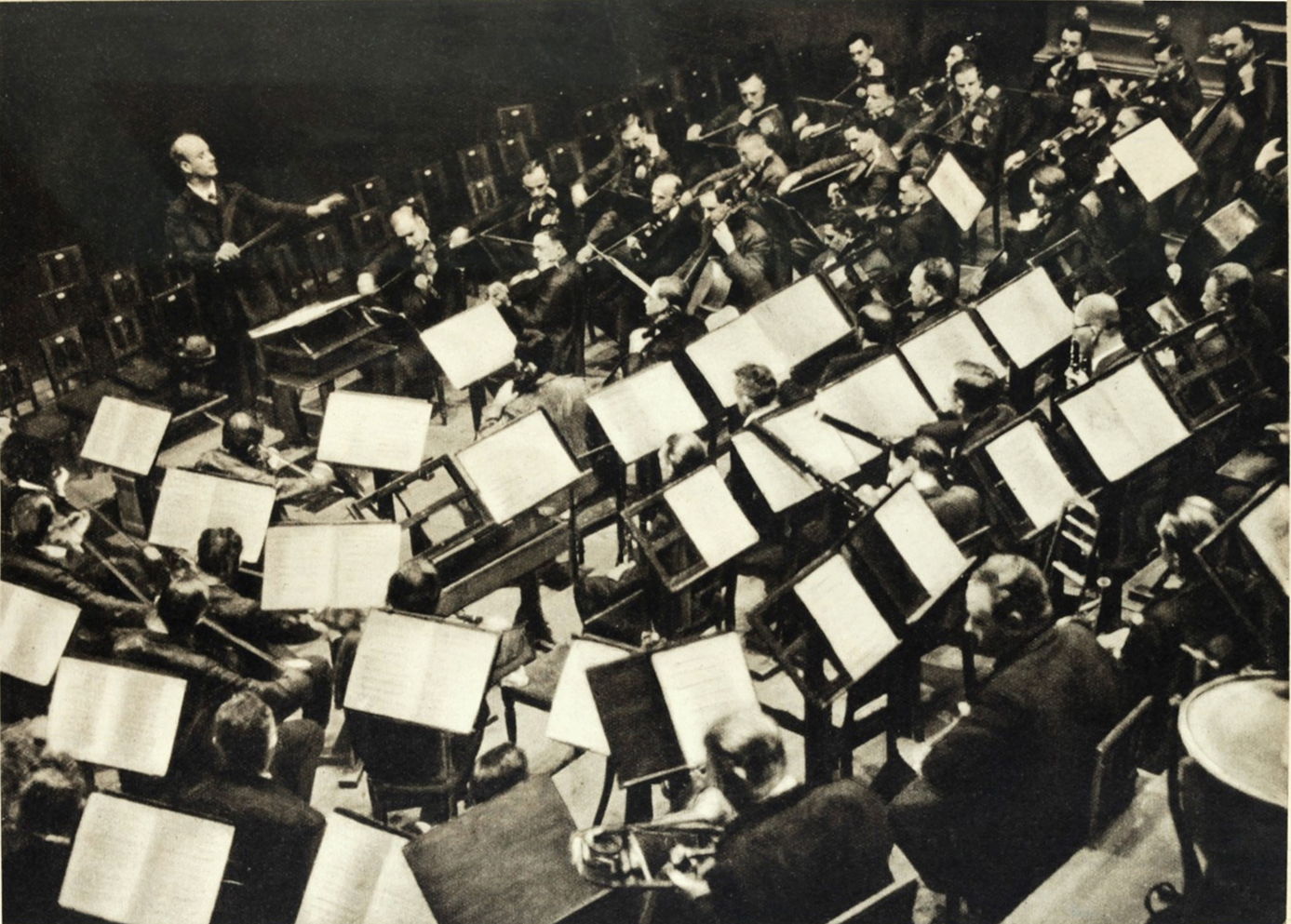Month: June 2018
News
It is not often we come across pictures of musicians of the Berlin Philharmonic Orchestra taken in close-up in the midst of work.
Here are a few, no doubt from 1931, and we have even been able to put a name to each face. Click to enlarge.
And, from the same source, here they all are under the baton of their conductor.
SEARCH REWARD
In its issue no. 25/26 of 26 June 1918, the magazine Signale für die musikalische Welt had a news report from Lübeck: “As guest conductor, Furtwängler — to whom the Lübeck public is greatly attached on account of his activity in the past — conducted The Flying Dutchman with rare force of conviction”.

What about this: an unreported opera performance! There is no date, even if it is clear it was during the spring of 1918, but there is no trace in the known records. Nothing in what has been published concerning his activity in Lübeck and nothing either in his correspondence with Lilli Dieckmann. The nearest we find is this reference in a letter he sent her on 2 May: “It was a pleasure seeing you again in Lübeck…”
So, if you have any info…
Along the same lines we have discovered an unreferenced concert in Landau on 29 June 1920, Furtwängler conducting the Symphony Orchestra of the Palatinate.
The Berlin concerts of 9 to 12 January 1944 — the facsimile programme for which is now on line, and of which we have the complete recording made on the 9th — represent Furtwängler’s final appearances in the hall of the Philharmonie, which was destroyed in an air raid three weeks later.
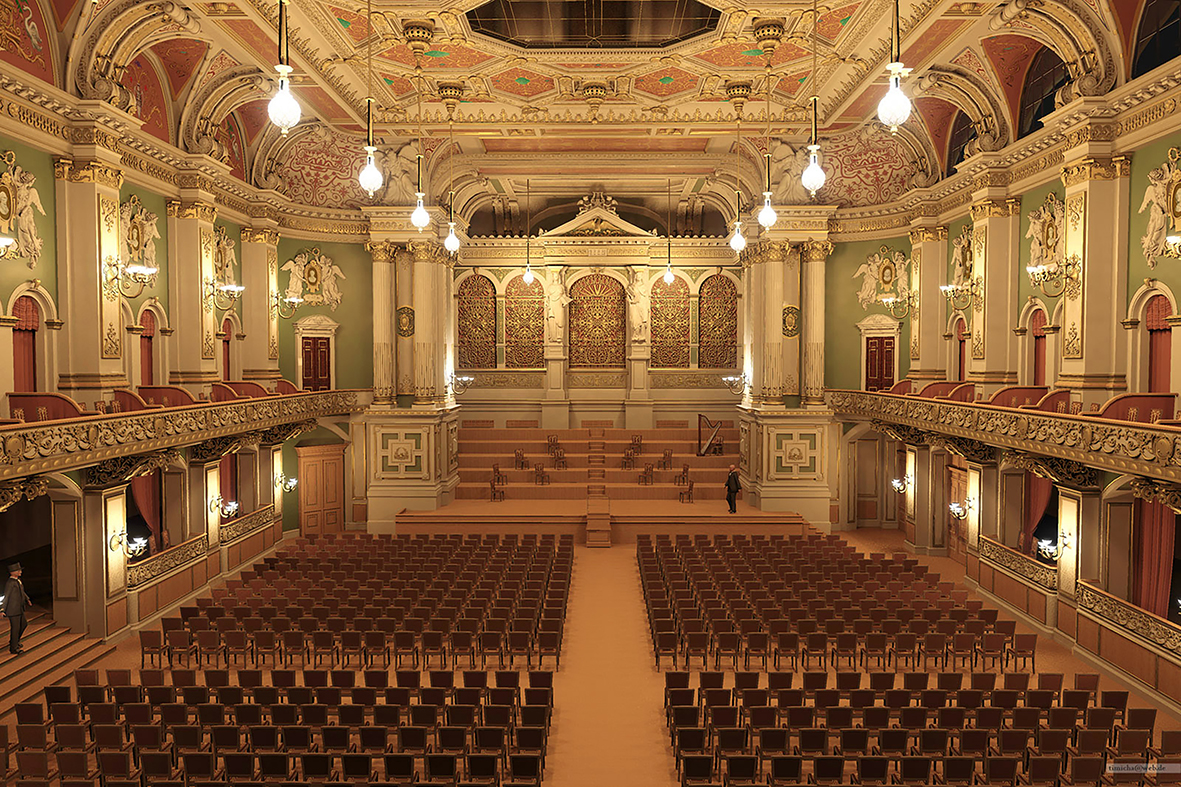
This is the moment to recall that this hall, which had been home to the Philharmonic Orchestra since its foundation, was originally an enormous roller-skating rink. The hall was extensively modified six years after the orchestra’s first performances and underwent further changes at the beginning of the twentieth century, resulting in the appearance that it retained until its destruction. The building also housed the Beethovensaal, which remained intact for a few more months, and the Oberlichtsaal, a huge space built on the site of the original garden.
Thereafter the Philharmonic would squat in one hall after another — the Beethovensaal, Staatsoper, Admiralspalast — until April 1945, when it finally found a temporary home in the Titania Palast. But that is another story.
And since we have always seen this hall only in black and white, this 3D reconstruction allows us to appreciate its unusual and decidedly ‘mittel-europa’ colours.
Solution to last week’s riddle
The first correct answer has come from Thierry Salomon, a French member. A big bravo.
The solution: this photo was taken during a performance of Furtwängler’s Symphonic Concerto by Edwin Fischer and the Vienna Philharmonic, on 14 or 15 January 1939, at the Musikverein.
.

The clues, even if the photo is not top quality:
– the placement of the cellos (centre-left as seen by the conductor) corresponds to the standard pre-war layout,
– one can recognise the Leader, Franz Mairecker, at the first desk from the spring of 1938,
– it is possible, with an effort, to recognise Edwin Fischer at the piano.
After cross-referencing these clues with the concert listings for Vienna (very few piano concertos with the Philharmonic) only this Concerto by Furtwängler corresponds to the mystery photo.
We have placed this photo in an annexe of the concert record, and offer you, above, a series taken during the rehearsal. Edwin Fischer has his back towards the camera.

